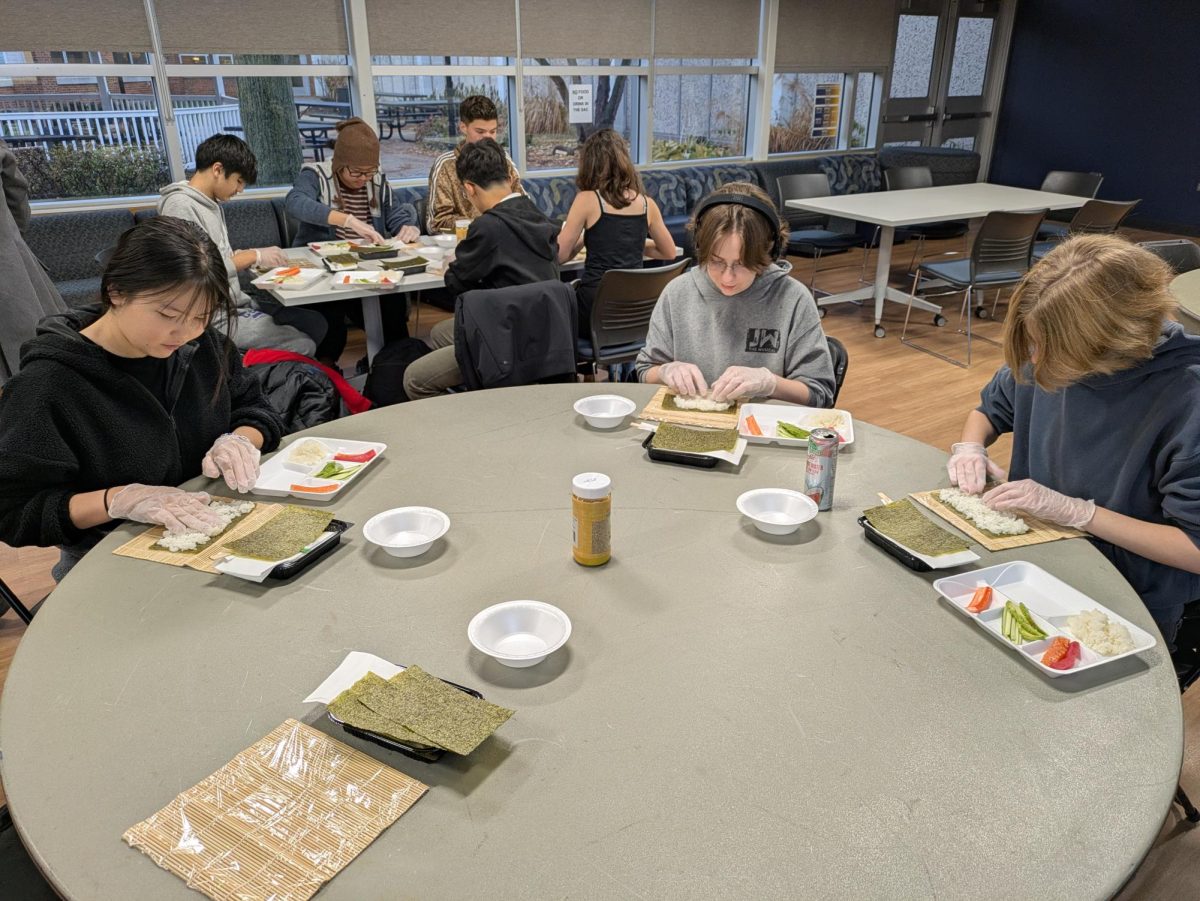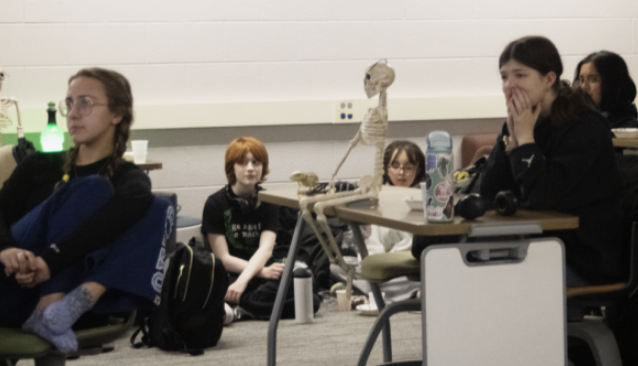The Oracle conducted an investigative experiment by creating a Facebook identity under the name of “Sarah Letterman” and sending requests to South students in order to collect data on students’ online leniency concerning accepting friend requests from unknown persons.
You’re casually scrolling through Facebook when a tempting red notification appears on your top bar. Curious, you click on the blue silhouette that denotes a friend request and take a good look at this potential friend. She has good looks and mutual friends, but you don’t immediately recognize her from her name or her photo. This presents a dilemma common amongst teen Facebook users: whether or not to accept a friend request.
This scenario is widespread and for several South students, this described their exact experience. In order to collect data on the leniency of students’ acceptance of Facebook friend requests, The Oracle conducted a month-long investigative experiment.
Seventy-five students from each grade were chosen at random to receive a friend request from an Oracle-created account under the pseudonym of “Sarah Letterman”. Out of the 300 students who were sent requests, 62 percent accepted. Contrary to this result, according to an Oracle-conducted survey of 179 students, 56 percent said they wouldn’t accept a friend request from an unknown person.
Junior Trey Buckingham was one of the 64 percent who accepted Letterman as a friend.
“The mutual friends I had with her were close friends, which gave me more confidence that this girl really did exist and attended South,” Buckingham said. “When I saw that she had that many mutual friends and went to South, I figured I had met her before or must have seen her around.”
Similarly, freshman Jamie Reynolds accepted Letterman’s friend request due to the substantial amount of mutual friends, paired with the alleged fact that Letterman attended South.
“I accept people I don’t know, but only if they go to my school and have a lot of the same friends with me or are in the ‘friend group’ of one of my friends,” Reynolds said. “Now that I consider it though, it’s creepy, especially since you don’t know the person.”
Accepting requests from unknown people conflicts with the childhood lesson: stranger danger. Nowadays, “stranger danger” doesn’t just mean somebody offering children candy from a van, but it has evolved as online networking has expanded.
Journalist Amy Summers from socialtimes.com echoes these sentiments, emphasizing the hazard of being too trustworthy online.
“The scariest thing about this technology is that we never know who we’re talking to,” Summers said. “Strangers from all over the world can now be following not only children, but teenagers and mature adults from all over the world.”
Senior Grace Pittner follows the “stranger danger” rule when it comes to Facebook friends. According to Pittner, there is no point in accepting friend requests from unknown people.
“I chose not to accept Letterman because I didn’t know who she was,” Pittner said. “I accept friends that I talk with at school a lot and have some classes with.”
Like Pittner, sophomore Breck Murphy decided against accepting Letterman. According to Murphy, she, or a close friend, needs to know the name of the requester in order to accept.
“If [the name] sounds unfamiliar or there are few mutual friends, then I immediately deny the request,” Breck said.
While some, like Pittner and Murphy, declined the request, other South Facebook users decided to send a request to Letterman. Amongst the request senders was freshman Mclain Murphy.
“I friended her because she was always popping up on the ‘People You May Know’ list, and the name sounded familiar,” Mclain said.
Similarly, sophomore John Hennelly requested to be friends with the account, basing his rationale on mutual friends and school information.
“It says she goes to GBS and maybe I would meet her,” Hennelly said.“I do friend people that have many mutual friends and go to GBS.”
While some students are more lenient with their online friends, others tend to question unknown requesters. One example is senior Vika Petlakh.
According to Petlakh, she denied Letterman’s request due to the fact that she did not recall meeting her. Petlakh sent a message to the fake account, asking if they knew each other.
“[I normally reach out to unfamiliar requesters] to be able to better filter my friend requests and who can view stuff on my profile,” Petlakh said.
Like Petlakh, senior Victor Balan questioned the account by sending a message, yet unlike Petlakh, he did so after accepting the request. According to Balan, he questioned the account in case she was a new student and “to see why she added me.”
According to the Oracle-conducted survey, 52 percent of students would feel uncomfortable with a stranger looking through their online profile. To accommodate these sentiments, Facebook has several privacy settings.
One recent modification on Facebook involves the concept of “stranger danger.” According to Facebook, it is against their Terms and Conditions for people to send friend requests to people they do not know, and such activity could be considered harassment.
According to the survey, 14 percent of students believe that Facebook privacy settings are not secure; however, Breck disagrees.
“Facebook does all that it can to protect its users,” Breck said. “I think it’s actually people who don’t protect their privacy enough.”
Reynolds offered an explanation to the alleged lack of privacy settings usage.
“I do think [Facebook privacy settings] are relatively secure, except I feel like no one dares to use all the privacy settings for a few reasons,” Reynolds said. “It could make it harder to make Facebook ‘friends’ if everything’s blocked off.”
During the investigative experiment, the account received several warnings from Facebook about sending requests to people who said they did not know Letterman. Recently, Facebook has been asking receivers of friend requests if they know the requester in real life. If the answer is no, Facebook warns the sender of the request and potentially blocks them from sending more requests.
Though Facebook is taking extra safety precautions, it’s ultimately up to each individual to decide the availability of his or her profile.







